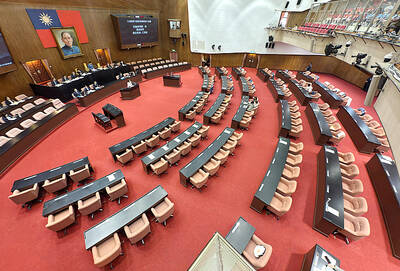The euro fell this week, heading for its worst week against the yen in two months, after Handelsblatt reported the IMF is discussing aid programs with at least 10 Eastern European governments.
The euro weakened versus 12 of its 16 major counterparts after the German newspaper cited unidentified IMF officials as saying the countries applying for loans for the first time included Bulgaria, Croatia and Macedonia.
The yen and the dollar rose against most major currencies as US stock futures fell, boosting demand for safer assets. The euro also dropped before a French report that economists said will show industrial output slid for a ninth month.
“There are lingering worries over the financial health of eastern and central European countries,” said Tsutomu Soma, a bond and currency dealer at Okasan Securities Co in Tokyo. “Investors are still risk averse, so they’re likely to sell the euro and buy the yen and dollar as safe-haven currencies.”
The euro declined to ¥129.79 as of 7:02am in London from ¥130.36 on Thursday in New York, set for a 3.3 percent loss in the past week, the biggest since the period ended May 15. The euro dropped to US$1.3966 from US$1.4020. Japan’s currency was little changed at ¥92.95 per US dollar from ¥92.99.
India’s rupee and Malaysia’s ringgit led losses in Asian currencies this week as reports showed shrinking global demand for the region’s goods, damping the outlook for an economic recovery.
The rupee had its biggest weekly loss since February after the government projected the budget deficit will widen to the highest in 16 years as India spends more to boost growth. Malaysia’s currency had its worst week in almost five months as exports and factory production extended a slump into May. Japanese machinery orders unexpectedly shrank in May and Taiwan’s overseas sales fell for a 10th straight month last month.
“There was quite a bit of apprehension in the markets,” said Vishnu Varathan, a regional economist at Forecast Singapore Pte. “With the first half coming to an end, funds were trying to pull back a bit. They weren’t sure about the trajectory that was put forth earlier on the global economic recovery.”
The rupee dropped 2.3 percent this week to 49.005 per US dollar in Mumbai, according to data compiled by Bloomberg.
The ringgit declined 1.4 percent to 3.5775. It touched 3.5855 on July 9, the lowest level since April 29.
The won slid 1.3 percent to 1,282.50 in Seoul.
The New Taiwan dollar dropped 0.5 percent this week to NT$33.05 against the US currency.
Elsewhere, the Singapore dollar weakened 0.6 percent this week to S$1.4623, the Philippine peso fell 0.4 percent to 48.30 and the Thai baht was unchanged at 34.08.

The Chien Feng IV (勁蜂, Mighty Hornet) loitering munition is on track to enter flight tests next month in connection with potential adoption by Taiwanese and US armed forces, a government source said yesterday. The kamikaze drone, which boasts a range of 1,000km, debuted at the Taipei Aerospace and Defense Technology Exhibition in September, the official said on condition of anonymity. The Chungshan Institute of Science and Technology and US-based Kratos Defense jointly developed the platform by leveraging the engine and airframe of the latter’s MQM-178 Firejet target drone, they said. The uncrewed aerial vehicle is designed to utilize an artificial intelligence computer

The Chinese Nationalist Party (KMT) caucus yesterday decided to shelve proposed legislation that would give elected officials full control over their stipends, saying it would wait for a consensus to be reached before acting. KMT Legislator Chen Yu-jen (陳玉珍) last week proposed amendments to the Organic Act of the Legislative Yuan (立法院組織法) and the Regulations on Allowances for Elected Representatives and Subsidies for Village Chiefs (地方民意代表費用支給及村里長事務補助費補助條例), which would give legislators and councilors the freedom to use their allowances without providing invoices for reimbursement. The proposal immediately drew criticism, amid reports that several legislators face possible charges of embezzling fees intended to pay

REQUIREMENTS: The US defense secretary must submit a Taiwan security assistance road map and an appraisal of Washington’s ability to respond to Indo-Pacific conflict The US Congress has released a new draft of the National Defense Authorization Act (NDAA), which includes up to US$1 billion in funding for Taiwan-related security cooperation next year. The version published on Sunday by US House of Representatives Speaker Mike Johnson removed earlier language that would have invited Taiwan to participate in the US-led Rim of the Pacific Exercise (RIMPAC). A statement on Johnson’s Web page said the NDAA “enhances U.S. defense initiatives in the Indo-Pacific to bolster Taiwan’s defense and support Indo-Pacific allies.” The bill would require the US secretary of defense to “enable fielding of uncrewed and anti-uncrewed systems capabilities”

Renewed border fighting between Thailand and Cambodia showed no signs of abating yesterday, leaving hundreds of thousands of displaced people in both countries living in strained conditions as more flooded into temporary shelters. Reporters on the Thai side of the border heard sounds of outgoing, indirect fire yesterday. About 400,000 people have been evacuated from affected areas in Thailand and about 700 schools closed while fighting was ongoing in four border provinces, said Thai Rear Admiral Surasant Kongsiri, a spokesman for the military. Cambodia evacuated more than 127,000 villagers and closed hundreds of schools, the Thai Ministry of Defense said. Thailand’s military announced that